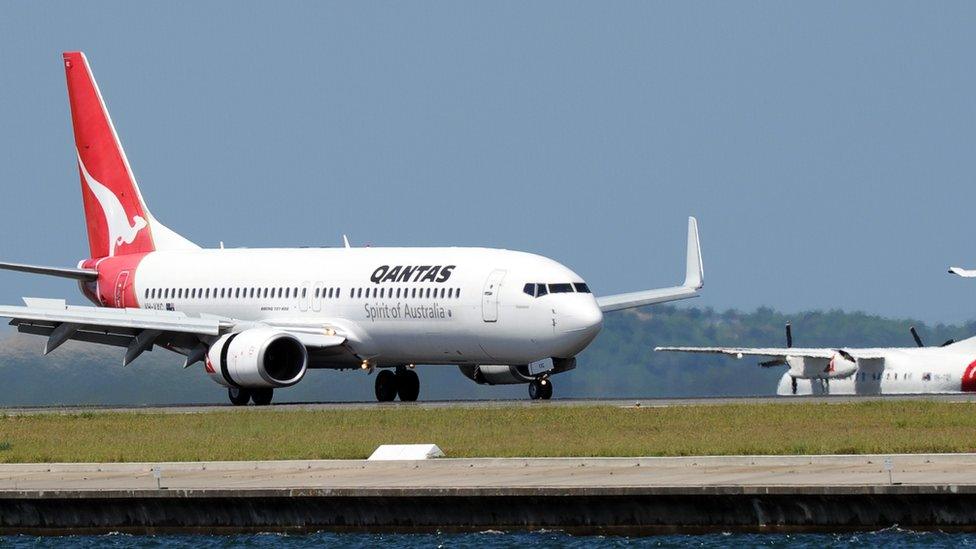Boeing boss gives up bonus following plane crashes
- Published
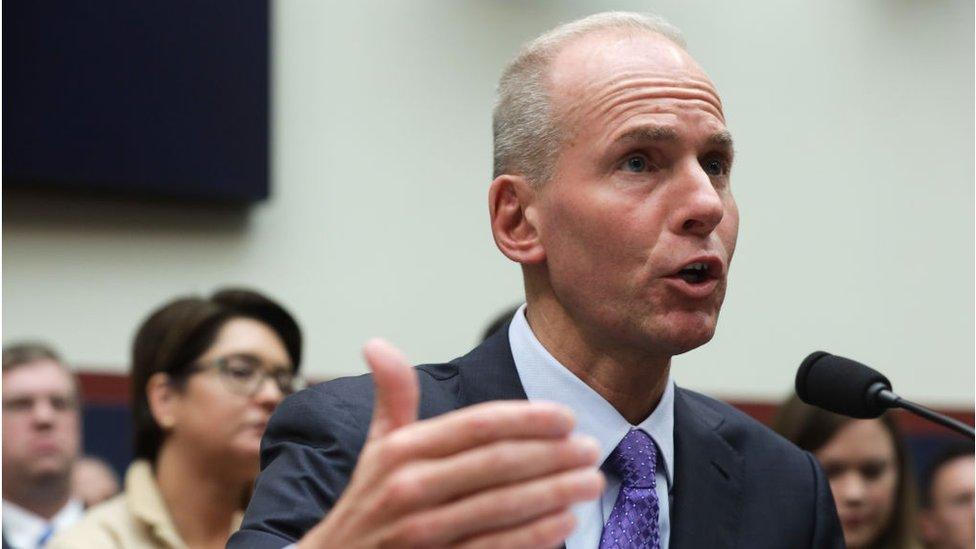
Boeing's boss Dennis Muilenburg will not take a bonus this year following two crashes involving the firm's 737 Max plane which killed 346 people.
Boeing's chairman David Calhoun said Mr Muilenburg had made the suggestion.
Mr Muilenburg recently faced US lawmakers who accused the firm of building "flying coffins" and engaging in a "pattern of deliberate concealment".
But Mr Calhoun said Mr Muilenburg "has done everything right".
Mr Calhoun, who took over as chairman after Mr Muilenburg was stripped of the role last month, told CNBC that the chief executive retained the confidence of Boeing's board.
For 2018, Mr Muilenburg's pay included a $13m (£10.1m) bonus on top of his $1.7m salary. His total pay package rose 27% from 2017.
Last October, a Boeing 737 Max operated by Lion Air crashed, killing all 189 people on board.
Five months later an Ethiopian Airlines plane crashed, killing 157 people, after which the entire 737 Max fleet was grounded.
Adnaan Stumo, whose sister Samya died in the Ethiopian Airlines crash, says Mr Muilenburg must go
At last week's hearing with US senators, families of people who died in the crash told the BBC that they felt Mr Muilenburg was evasive and should resign.
"I want him to say unequivocally that he takes responsibility for the deaths of 346 people because the crashes were preventable," said Paul Njoroge, who lost five family members in the Ethiopian Airlines crash.
Adnaan Stumo, whose sister Samya died in the Ethiopian Airlines crash, said Mr Muilenburg should step down "and go to jail".
Senators also criticised the regulatory process, saying there was excessive "cosiness" between the firm and safety officials at the Federal Aviation Administration (FAA).
Mr Muilenburg told the hearing that the firm supported "strong oversight" but declined to support increasing the authority of the FAA, which has been criticised for delegating too much of its oversight to company officials.
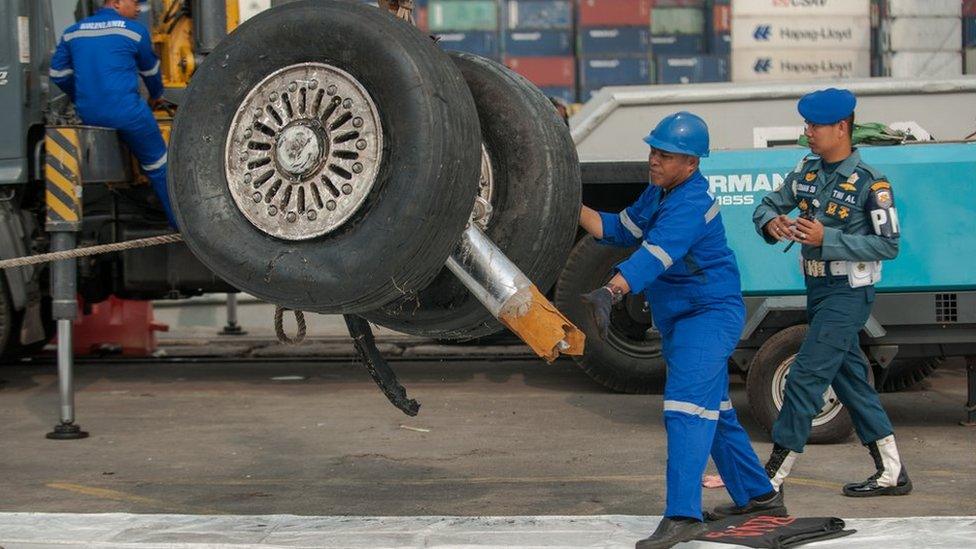
The Lion Air crash in October last year killed 189 people
Speaking to CNBC on Tuesday, Mr Calhoun said that the company did not have any plans to change the name of the 737 Max.
Since the grounding of the 737 Max fleet in March, Boeing has said it is fixing the model's software and has overhauled its review procedures.
In April, Boeing reduced production of the plane by almost a fifth. Mr Calhoun said the company was not expecting to make any further production cuts.
Separately, the head of the International Air Transport Association (IATA) said regulators should co-operate in assessing the airworthiness of the 737 Max rather than pursuing their own approval processes.
Alexandre de Juniac told Reuters that taking an individual approach was "a big, big, big mistake".
"We have built the safety of this industry on the single certification decision and the mutual recognition and it has worked very well."
- Published30 October 2019
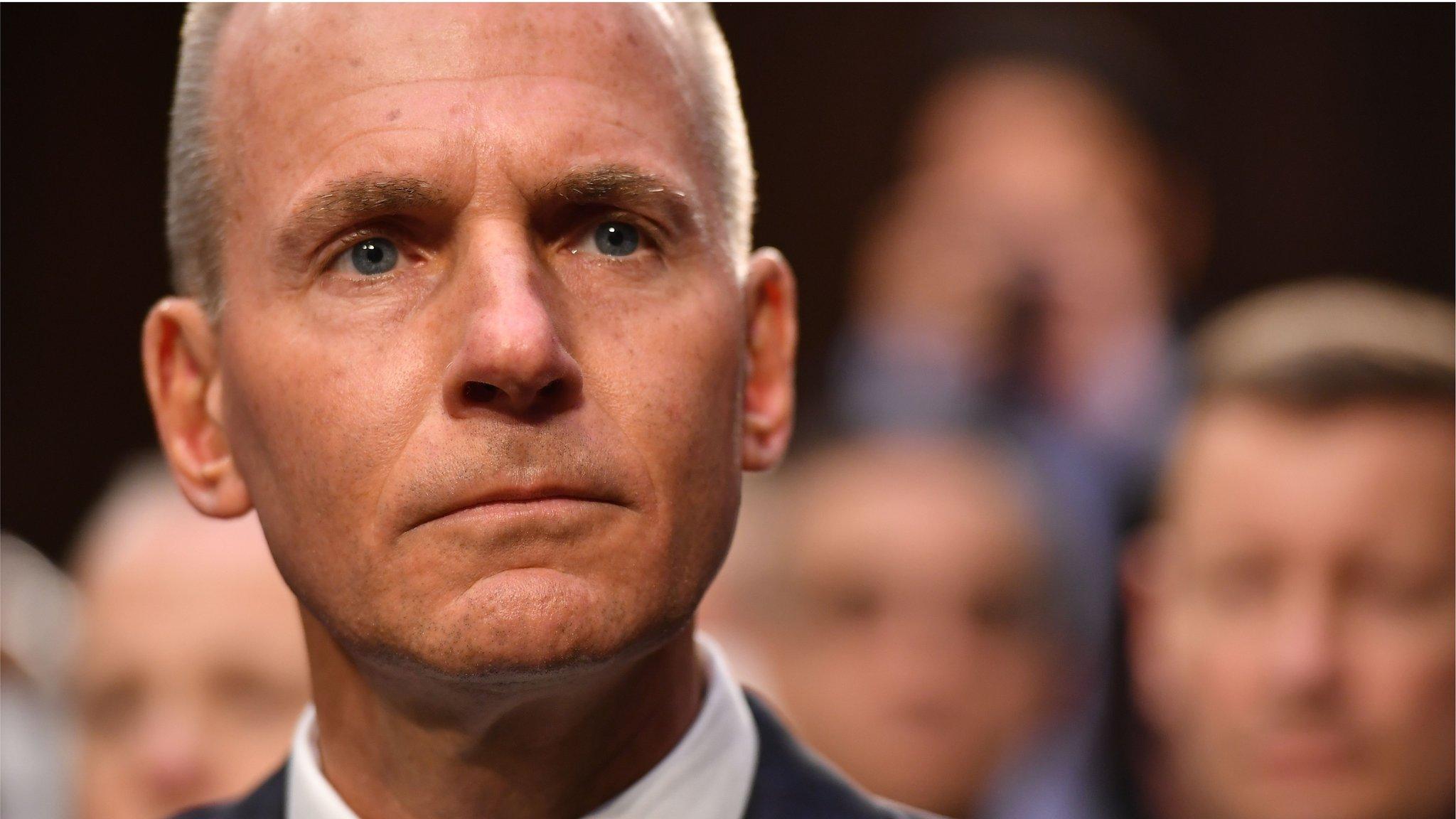
- Published25 October 2019
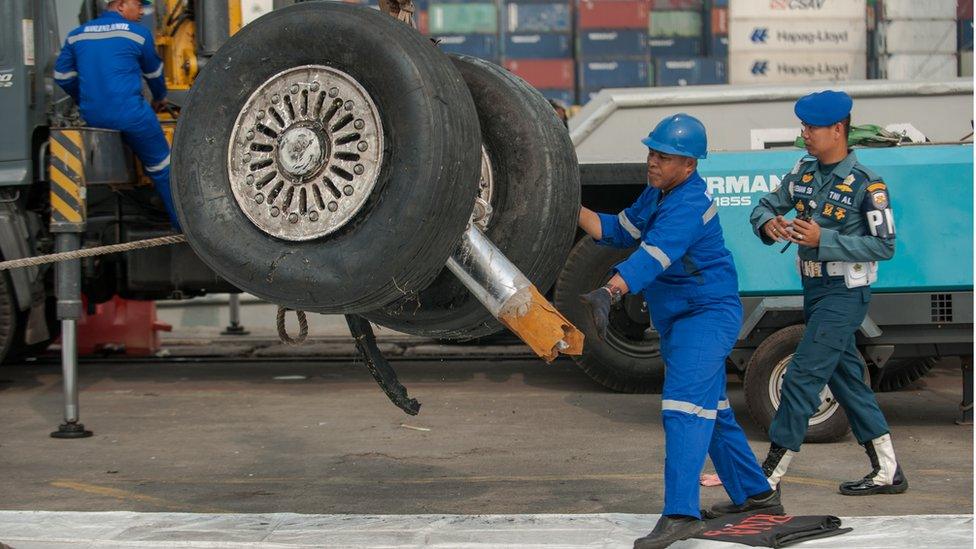
- Published31 October 2019
